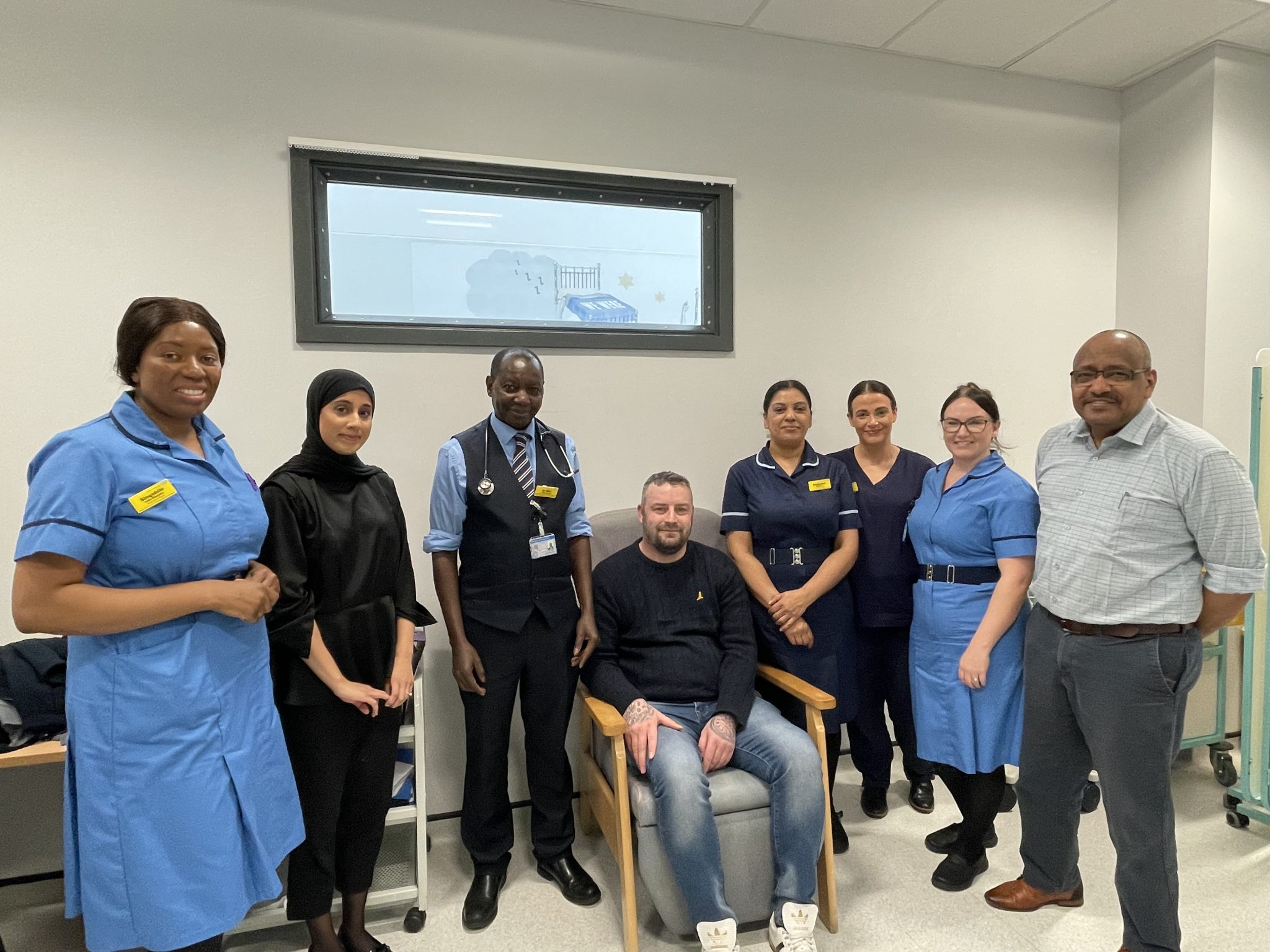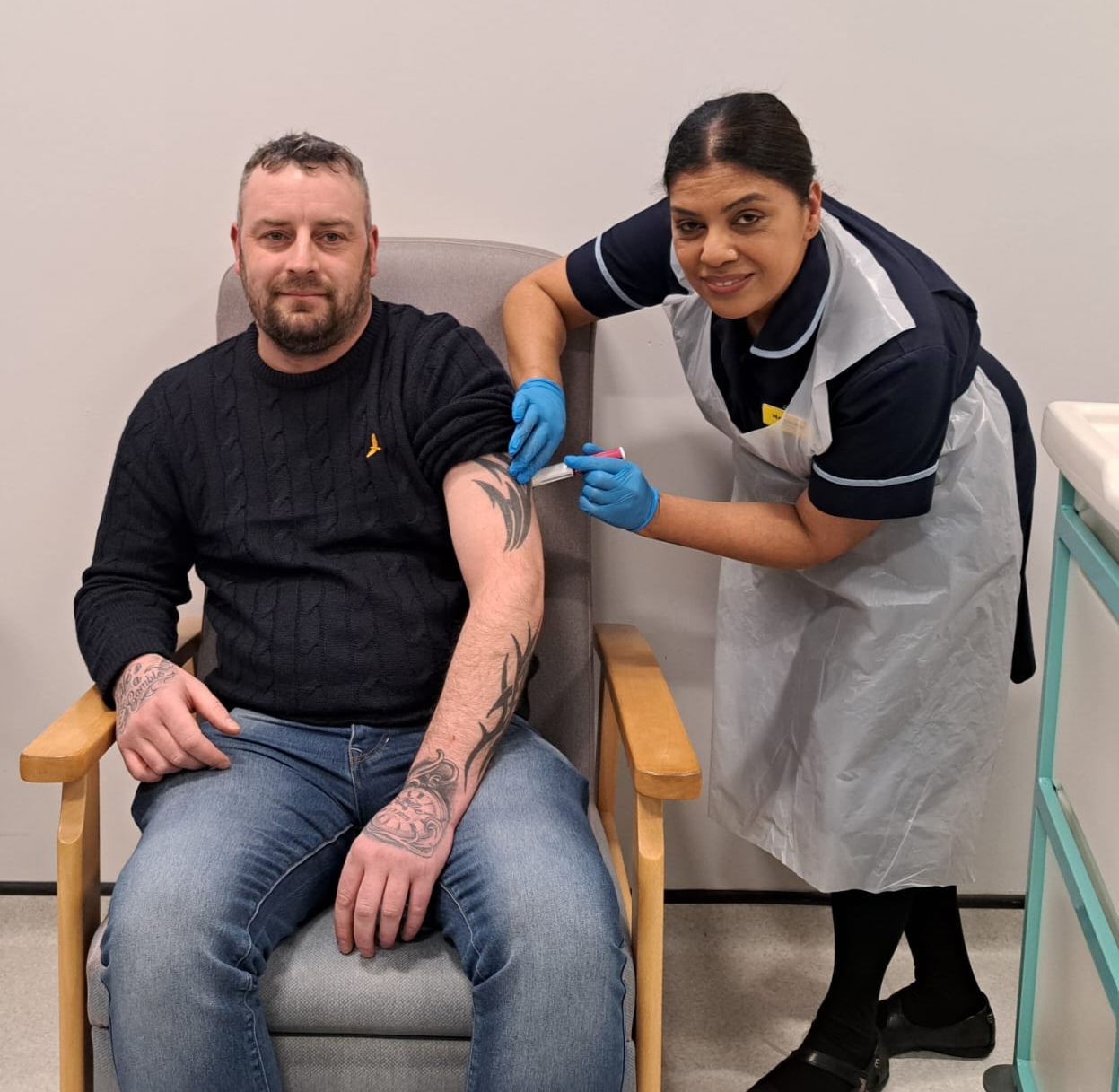Patients with severe asthma are now undergoing “life-changing” biological injections at Walsall Manor Hospital for the first time to reduce their symptoms.
NHS England has approved the Trust as a Tier 3 Severe Asthma Centre, working in a Shared Care Agreement arrangement with the Birmingham Regional Severe Asthma Centre.
It means patients can now have their treatment at Walsall Manor Hospital and no longer have to travel to Heartlands Hospital in Birmingham for their injections.
To be a Tier 3 service, there needs to be a minimum of six Respiratory Consultants to be employed by the Trust.
Dr Max Matonhodze, Consultant Physician at Walsall Healthcare NHS Trust, said: “This is a very significant milestone for our asthma service.
“This is life-changing for our patients. Before this, patients had to travel to Heartlands but now we are repatriating them and since August we have 15 patients on our list.”
Father of three Shayne Tolley, 38, from Tividale, was the first patient to have the injection at the Manor.
Shayne, a garage shutter manufacturer, had a severe asthma attack which left him unable to breathe.
Within 45 minutes of being rushed to hospital, he was admitted to the Intensive Care Unit, where he spent a week.
“Pollen or a change in temperature could bring on attacks and I’d have coughing fits,” said Shayne. “It got to the stage where I couldn’t walk from the car to the house.
“I couldn’t play football with my five-year-old son or go to work – it took me off my feet and I wasn’t far off being bed-ridden.
“These injections will help me breathe better and I won’t have to use my inhaler so much.”
Harjinder Sheemar, Specialist Nurse, injected Shayne and Pamala Allen, 67, who was the second patient to undergo the treatment at Walsall.
Pamala, from Walsall, a retired archivist, has had asthma since six weeks after giving birth to her son Wes 42 years ago. She took steroids for many years but the drugs caused weight issues.
“I’m all for trying new things and this is a game-changer, not just for me but for other people too,” said Pamela.
There are now five biological drugs which are National Institute for Health and Care Excellence (NICE) approved for treatment of severe asthma. Some of these drugs are given fortnightly, others monthly.
The first two patients were given Benraluzimab, which is administered once every four weeks for the first three injections, then once every eight weeks thereafter.
Patients can administer the drug at home after the first three injections.
“We are now trying to see as many patients as possible in a timely manner,” added Dr Matonhodze.
“We want to put as many people as possible on the asthma register so we can monitor these patients.”
People with severe asthma must go to their GP in the first instance and they will be assessed to see if they are suitable for referral for the injections.


